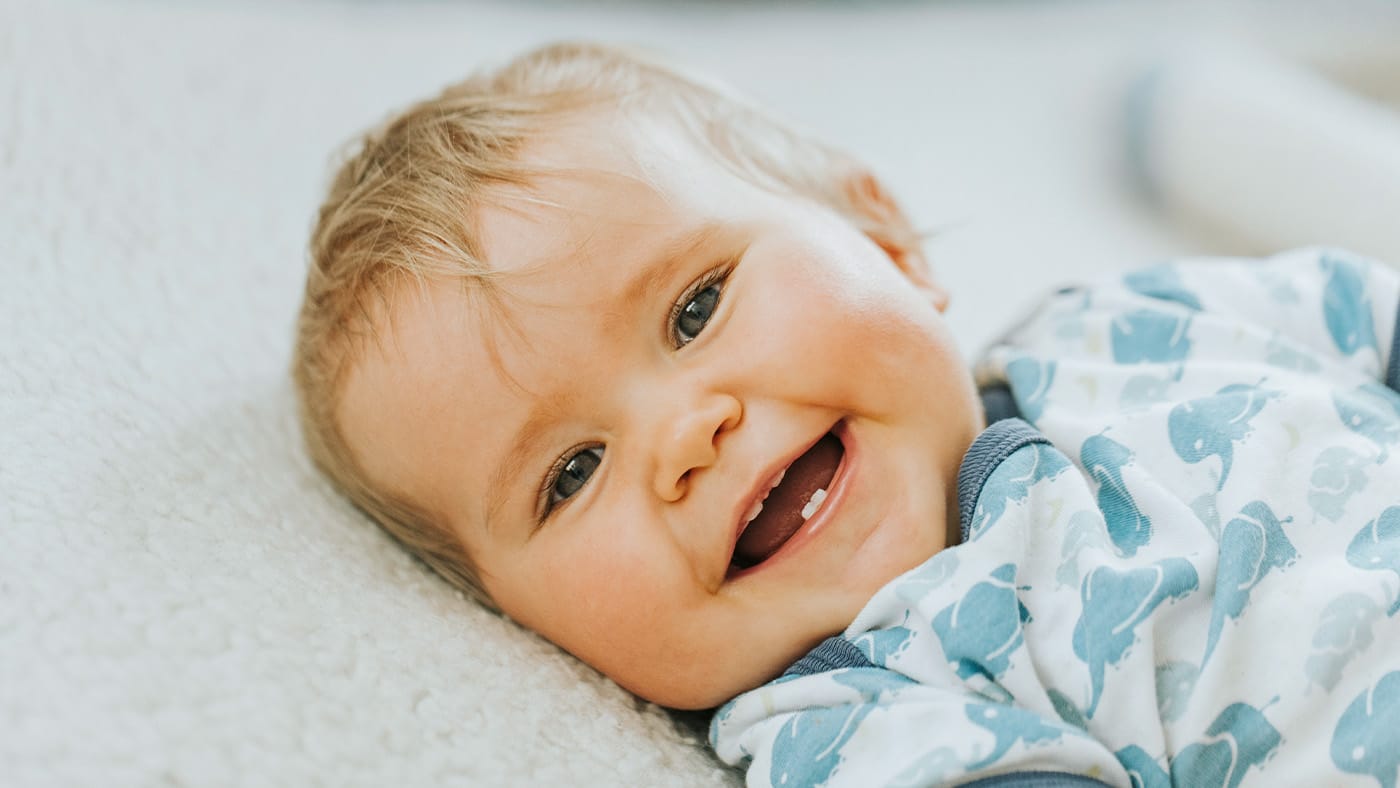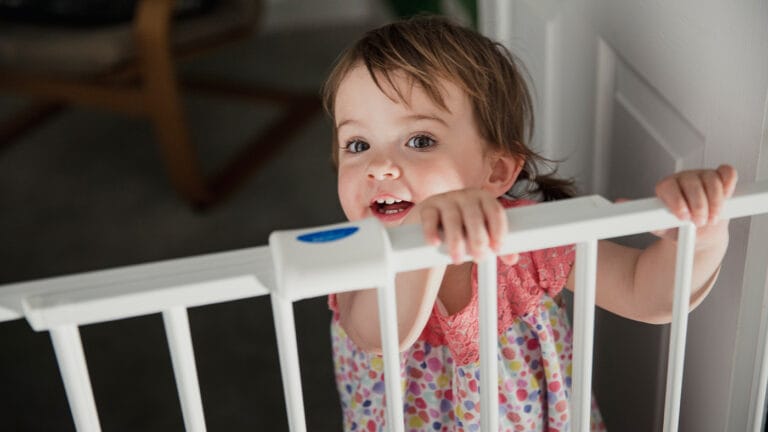Most babies with teeth get their first tooth around six months of age, though they can show up earlier, and some babies are even born with teeth that have already emerged. When your baby is a few years old, they should have 20 teeth. They’ll start losing them around age six, falling out in the same order they erupted, and they’ll typically lose all of their primary teeth by age 14.
Parents sometimes incorrectly assume that baby teeth aren’t worth caring about because they’ll fall out and be replaced. In reality, cavities and tooth decay can present as soon as your baby’s first tooth appears, often during baby’s teething. Early childhood dental habits set the stage for lifelong oral health.
Roughly a quarter of all kids get a cavity before their fifth birthday. Cavities can form in tiny mouths when bacteria damage the enamel. Bacteria feed on sugars in your baby’s mouth, which are leftover from eating and drinking. Even the natural sugars in breast milk and formula, not to mention the other foods and treats your child might be eating, are enough to get hungry bacteria going.
Why Protecting Baby Teeth Matters
While your baby’s primary teeth will all be replaced by the time they reach their teen years, research suggests that the habits kids develop when they’re little influence their overall oral health. Creating good habits early on can reduce the risk of cavities, tooth decay, and other dental concerns down the line. Understanding when babies start teething helps parents prepare for these changes.
- The dangers of tooth decay: Damaged teeth may require early removal, which is stressful and painful. In addition, missing teeth create gaps that allow other teeth to shift into undesirable positions, necessitating braces when they get older. Babies teething can be a challenging time, but maintaining good oral hygiene is crucial.
- How baby teeth impact health: Primary teeth help babies speak and chew, facilitating physical, emotional, and social development. Untreated cavities can lead to serious oral infections and may impact the growth of your baby’s teeth throughout their lives. Recognizing symptoms of baby teething, such as irritability and drooling, can help you manage this process better.
- Saving space for adult teeth: Healthy baby teeth save a spot for permanent teeth to grow in. If teeth fall out or are removed early, a spacer may be needed to keep everything in its proper place.
How To Protect Your Baby’s Teeth
- No bottles at bedtime: Letting your baby fall asleep with a bottle might make bedtime easier, but it raises the risk of tooth decay. Sleeping with a bottle allows sugars to stay in your baby’s mouth overnight, providing ample opportunity for hungry bacteria to do their dirty work. Pediatric dentists often refer to early cavities as “baby bottle tooth decay.”
- Avoid sharing cups, spoons, and other objects: Bacteria can move from your mouth to your baby’s mouth through shared objects. Parents sometimes pop a pacifier in their mouths before giving it back to their baby or taste baby food from the spoon before feeding. These and similar activities can transfer damaging bacteria from you to your baby without you realizing it.
- Keep your baby’s mouth clean: Oral health begins before the first tooth emerges. How to clean a baby’s mouth involves wiping your baby’s gums with a soft, clean, damp washcloth or gauze pad after feeding, especially before bedtime. When the first tooth comes in, switch from a cloth to a soft-bristled toothbrush with a small amount (about the size of a grain of rice) of fluoride toothpaste. Starting these habits before teeth come in helps to get your baby used to good oral health practices.
- Minimize or avoid sugary drinks and treats: Everyone loves a good glass of juice or other flavored drinks, but they contain a lot of sugar, harming little teeth. Kids under 12 months old should only drink breast milk, formula, and water. After the first birthday, you can introduce small amounts of juice (4 ounces or less per day), preferably diluted with water. Likewise, minimize sugary snacks and treats and always wash or brush after snacking.
- Visit a dentist early: The first tooth usually erupts between six and twelve months, giving you a cue to set up the first dentist visit. When do you take baby to dentist? Children should visit the dentist within six months of the first tooth erupting or by their first birthday, whichever comes first. Our pediatric dentists are specially trained to understand and treat tiny mouths. They’ll be able to give you the best guidance as your baby grows. Preventing baby teeth decay is crucial for maintaining healthy teeth.
Caring for baby teeth is integral to your child’s early development, but it doesn’t have to be overwhelming. Offer your children water first, keep their mouths clean, and get help from a pediatric dentist if you have any questions or concerns. Seeing your baby’s beautiful, healthy smile will be worth it!





